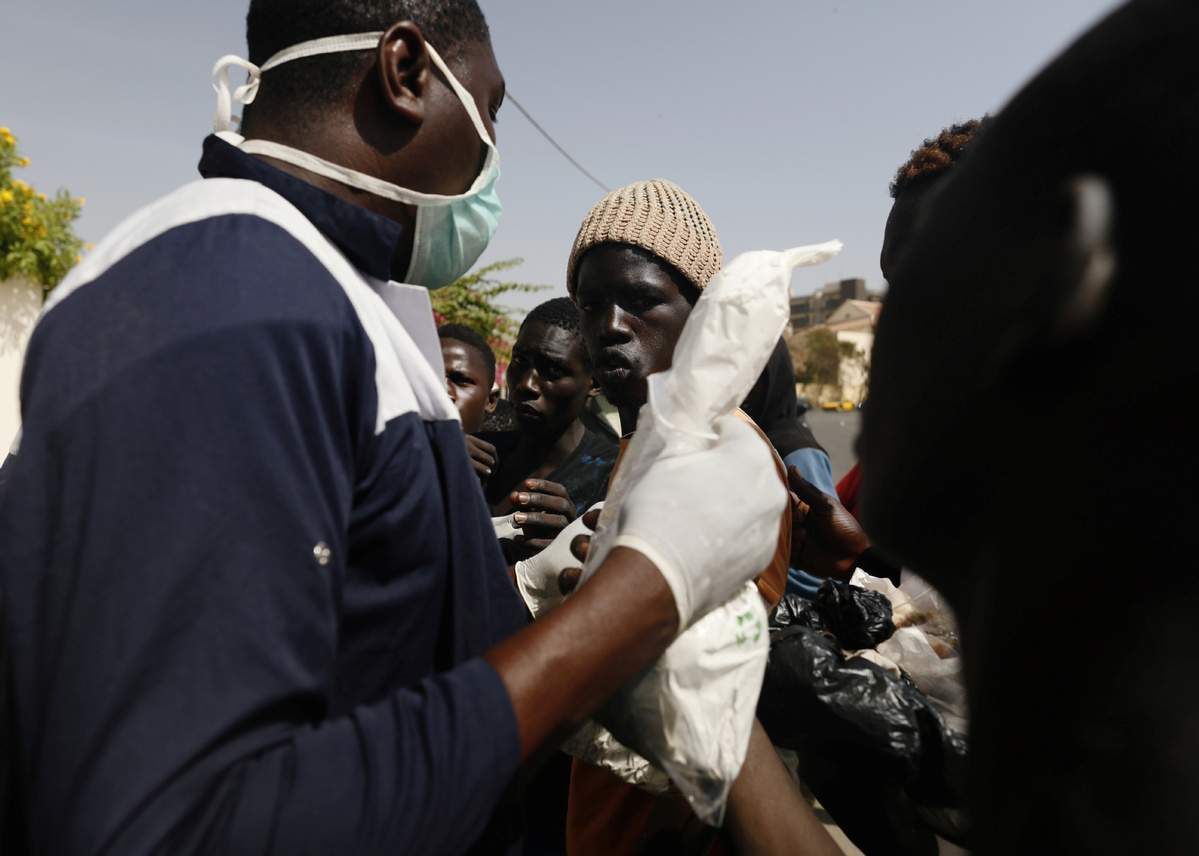UN warns hunger in West Africa bound to worsen amid outbreak
By Otiato Opali in Nairobi, Kenya | chinadaily.com.cn | Updated: 2020-04-03 20:41

The United Nations, via the World Food Program, has projected a 77 percent increase in the number of people who will face hunger during the upcoming dry season between June and September in West Africa. WFP has also warned the situation is likely to be complicated further by the coronavirus pandemic.
According to a WFP food assessment of 17 West African countries released on April 2, the food insecure number inBurkina Faso is expected to be more than 2.1 million people in June, up from over 680,000 at the same time last year.
"This is a crisis layered on top of a crisis, and the situation risks getting out of hand," said Chris Nikoi, WFP's Regional Director for West Africa. "People are on the brink and we must step up now to save lives. Our message to the world is clear - look away now and the consequences will be no less than catastrophic."
According to WFP's assessment, the situation across Africa's Central Sahel region, which encompasses Burkina Faso, Mali and Niger, is extremely worrying, with the number of hungry rising steadily as the pandemic deepens. This has pushed 1.3 million people in Mali and 2 million people in Niger into severe food insecurity.
"WFP assisted 1.5 million people in Burkina Faso and Mali in February, but more support is needed to tackle the crisis, especially as the threat of the coronavirus puts life-saving humanitarian work on the line. WFP urgently requires $208 million through August 2020 to carry out its lifesaving operations in this region," the assessment by WFP states.
WFP says it is using lessons and resources established during the 2014-2016 West Africa Ebola outbreak, which showed food assistance can play a vital role in containing disease spread. In addition, food security reduces vulnerabilities to infection through nutrition programs that target vulnerable communities with compromised immune systems, like the chronically ill and the elderly.
"As it did in response to the Ebola outbreak in 2014 and again in 2016, WFP will continue to leverage its unmatched logistical expertise and field presence to closely monitor food supplies, preposition food stocks to priority operations and support the WHO and governments with supply chain expertise," the statement read.
WFP further states the number of internally displaced people has increased fourfold across the Central Sahel, with numbers spiking in Burkina Faso to 780,000 up from half a million at the start of the year. Most of the refugee populations live in close proximity and lack adequate medical facilities, putting them at elevated risk of contracting the coronavirus.
























